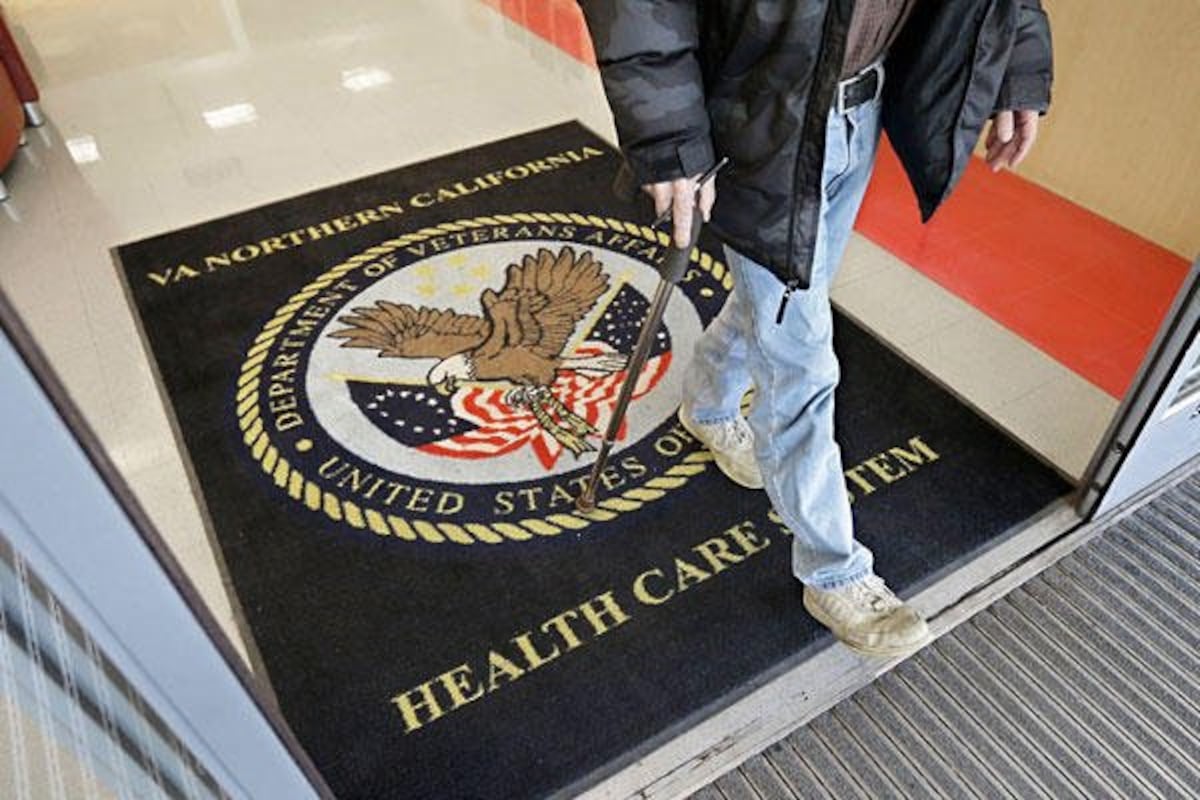House Republicans on Tuesday unveiled new legislation to further expand veterans’ ability to access private-sector medical care options using taxpayer funds, a move that launches debates expected in coming years about the size and responsibilities of the Veterans Affairs health care system.
The bill — dubbed the “Complete the Mission” Act — is sponsored by House Veterans’ Affairs Committee Chairman Mike Bost, R-Ill., and has received strong support from several conservative activists.
It would expand community care options for patients of the Veterans Health Administration to include nearly all extended care services, such as mental health residential rehabilitation, and block VA from offering telehealth appointments with department physicians in lieu of outside care options.
The measure would also ease rules for consideration of community care eligibility, to include accounting for caregiver schedules and preferences. It would mandate new reimbursement rules for outside medical offices and mandate better sharing of private-sector options by VA leaders to patients.
RELATED
“The [original] MISSION Act transformed the delivery of health care to veterans across the nation, especially in rural and remote areas of the country,” Bost said in a statement. “Every veteran has earned timely options for quality health care to meet their needs — no bureaucrat is allowed to stand in the way of that.”
Expanding “choice” in veterans’ medical benefits was a major focus of President-elect Donald Trump’s first term in office, and is expected to be a point of emphasis when he takes office again next year.
Congress approved the VA MISSION Act in June 2018, which overhauled eligibility rules for veterans outside care options.
Community care options have risen significantly since then. In fiscal 2017, the department paid for nearly 27 million outside care appointments, roughly 27% of VA total scheduled medical visits. In fiscal 2023, that number grew to almost 47 million, about 39% of the total.
Despite the growth, conservative groups have accused President Joe Biden’s administration of trying to undermine the outside care options, through excessive rules and insufficient communication of patient choices. They’ve also accused VA leaders of working to grow their own department instead of finding ways to best serve veterans.
While introducing the bill, Bost criticized “VA bureaucrats standing in the way of veterans’ community care access.”
Concerned Veterans for America Strategic Director John Byrnes said VA leaders have “failed our nation’s heroes for nearly four years by not holding top officials accountable to act with integrity and uphold the VA’s mission to treat the veterans they vowed to serve.”
“Despite the VA MISSION Act being signed into law by President Trump, current VA leadership supports bureaucratic barriers to veterans’ access to community care,” Byrnes continued, “access that the law authorizes.”
VA leaders dispute that.
In a hearing before the House Appropriations Committee last month, Under Secretary for Health Shereef Elnahal stated that “community care is absolutely needed for many veterans.”
But he acknowledged that the increase in community care growth has slowed in recent years, which he said is because “we are offering more appointments between medical centers that more veterans are taking us up on, and veterans are voting with their feet.”
Democratic lawmakers have accused their Republican colleagues of working to privatize VA, undermining the department’s massive medical care system to shift more taxpayer money into private-sector businesses. Already, more than $24 billion is spent on community care appointments annually.
Despite likely support in the Republican-controlled House, Bost’s new measure could face trouble becoming law this year due to the compressed legislative schedule facing lawmakers.
Only three weeks of session are scheduled before the 118th Congress ends, and House and Senate leaders must pass a host of other bills — including a full federal budget extension and the annual defense authorization bill — before Jan. 1.
However, if the measure does not pass this year, it’s likely to become a foundational point for veterans legislative efforts in the next session, where Republicans will control the House, Senate and White House.
Leo covers Congress, Veterans Affairs and the White House for Military Times. He has covered Washington, D.C. since 2004, focusing on military personnel and veterans policies. His work has earned numerous honors, including a 2009 Polk award, a 2010 National Headliner Award, the IAVA Leadership in Journalism award and the VFW News Media award.
Read the full article here





